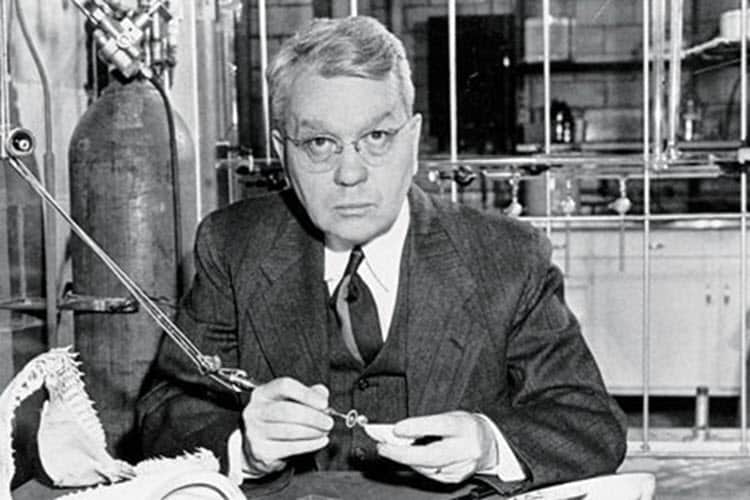Harold Urey (29 April 1893 – 5 January 1981) was an American physical chemist who was awarded the Nobel Prize in Chemistry in 1934.
Life and Career
He was born on 29 April 1893, in Walkerton, Indiana, USA. He received his undergraduate degree from the University of Montana in 1917 and his Ph.D. in chemistry from the University of California, Berkeley, in 1923.
After completing his doctoral studies, he held research positions at Johns Hopkins University, Columbia University, and the University of Chicago. In the late 1920s, he began investigating the isotopes of hydrogen and discovered deuterium, an isotope with a mass twice that of ordinary hydrogen. This discovery had important implications for our understanding of atomic structure and the origins of the universe.
During World War II, Urey worked on the Manhattan Project, which developed the first atomic bomb. He later became a professor at the University of Chicago and continued his research in isotope separation and the origin of the solar system.
He was also interested in the origins of the solar system and proposed the theory that the Earth’s water came from comets. He studied the isotopic composition of meteorites and lunar samples and suggested that the early Earth was bombarded by comets and asteroids, which brought water and organic compounds to our planet.
His work in astrochemistry explored the chemical reactions and processes that occur in space, including the formation of stars and planets. He was one of the first scientists to study the chemical composition of interstellar clouds and suggested that they could be the birthplace of new stars.
He died on 5 January 1981, in La Jolla, California.
Award and Legacy
In 1934, he was awarded the Nobel Prize in Chemistry “for his discovery of heavy hydrogen.”
He also received many other awards and honors throughout his career, including the National Medal of Science in 1964 and the Priestley Medal in 1973.
He is remembered as one of the most influential chemists of the 20th century, and his work in isotope separation and the origin of the solar system continues to inspire research today. The Harold C. Urey Prize in Planetary Science is named in his honor, and the University of California, San Diego, where he spent his later years, has a building named after him.

